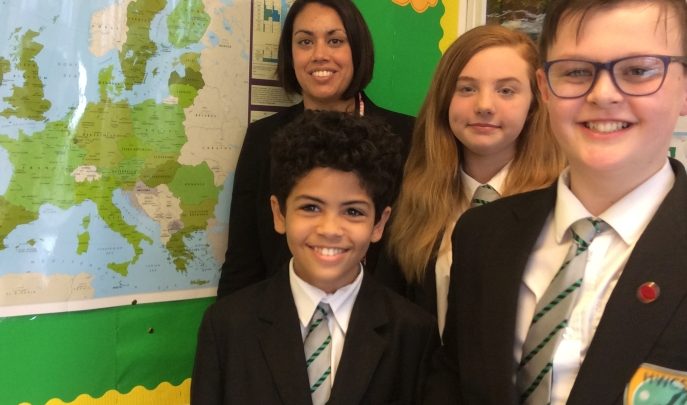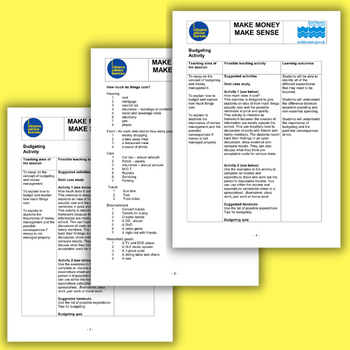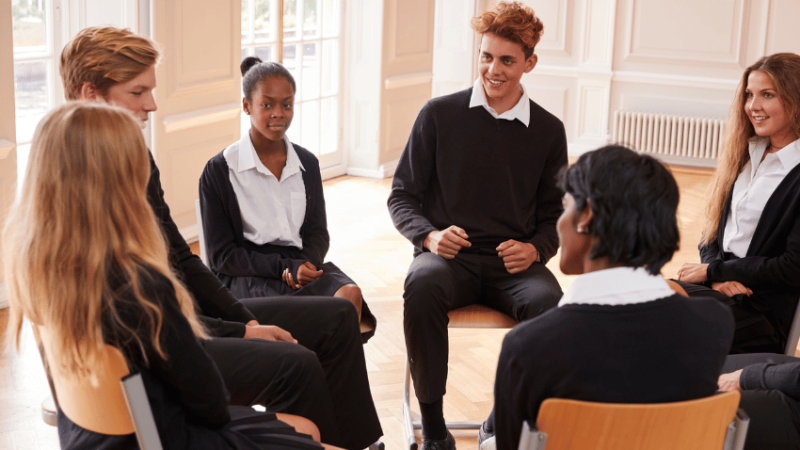Their Country, Their Future – The Secondary School Asking Its Pupils To Vote #Brexit Or #Bremain

Secondary pupils won't be able to vote in the upcoming EU Referendum – but one school in Hampshire is nonetheless keen to ensure its students are well-versed in the 'Brexit' and 'Stay' arguments…

Do you know which way you are going to vote in the EU referendum? If not, then you’re in the same position as around 20% of people across the country. As I write, polls are currently showing a 50/50 split between the ‘leave’ and ‘stay’ camps.
The fact is that the debate is confusing, and getting increasingly so. Each side is doing battle with hypothetical and scaremongering arguments, and it’s getting harder and harder to see through the political fog.
Spare a thought then for our young people – they’re picking up on the debate, as it’s everywhere, but the arguments are not being made clear to anyone, let alone in a way that they can understand. Yet these are the people that are going to have to live with whichever decision we make.
Getting students EU-vote ready
At Harrow Way Community School in Andover, we take political literacy very seriously. On Wednesday 22nd June, we will hold our own Harrow Way EU referendum – so we’ll be giving the pollsters a head start, with at least one set of results ahead of the big day.
As we approach our vote, the school will be working with students through a series of assemblies, tutor time activities, workshops and themed lessons in order to break down the ‘Brexit’ and ‘Stay’ campaigns down into a language that our young people can understand.
The students will watch various campaign videos, and make their own party political broadcasts and campaign materials. We’ve invited local politicians to present their arguments before the school, and we’ll be holding numerous debates involving teachers versus teachers, as well as teachers versus students, as the relative merits of both sides are explored and deliberated.
Importance of political literacy
The projects fits in well with the British Values agenda [PDF] by getting students to engage with the democratic process.
With the national marginalisation of Citizenship, much fantastic work has gone by the wayside, leaving a huge gap which could result in politically illiterate students. We believe it’s important that our young people are fully equipped for life on the ‘outside’ – and being politically aware is a large part of that.
Last year we held a general election at the school. Some of my colleagues at other schools were understandably wary. With the rise of UKIP and its underlying anti-immigration agenda, it could be argued that this might lead to disharmony amongst our student population – a growing number of which come from EU and other countries.
A momentous decision
However, it’s our firm belief that these issues should be raised, discussed and debated. There is a danger that young people will only catch snatches of the debate and not look beneath the surface. When I highlighted the fact that curbs on immigration might take away some of their favourite teachers (including me) they seemed to change their tune.
The result of our election was scarily close to the actual result. Maybe I could take up a sideline informing the pollsters, who I gather struggled a bit last year!
As the EU debate gathers pace, we aim to raise the profile of this momentous decision and, most importantly, attempt to inform our students as to what it might mean for Great Britain. When they vote on 22nd June, it won’t influence the outcome – but they will at least be able to make an informed decision and have their own say.
After all, it’s their country and their future. They shouldn’t be left out.
For more information, visit www.harrowway.hants.sch.uk or follow @harrowway











